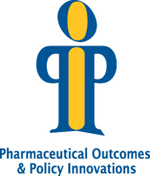Drug Effectiveness
POPi measures and evaluates pharmaceutical outcomes, produces evidence, and makes recommendations to decision makers for improved clinical and public policy medication use. Within the scope of this theme, we also provide expertise in clinical pharmacology, pediatric pharmacology, personalized medicine, pharmacogenomics, and population therapeutics.
Drug Safety
Less than 5% of adverse drug reactions (ADRs) are reported to regulators, and equally alarming are estimates that more than 100,000 patients in the US alone die from ADRs each year.
ADRs are responsible for at least 10% of all hospital admissions, yet 95% are never reported to regulators. This lack of information on ADRs and drug safety is particularly significant for children, as more than 75% of all marketed drugs have never been clinically tested in children.
The POPi-led Canadian Pharmacogenomics Network for Drug Safety (CPNDS) represents a transdisciplinary consortium of experts from hospitals, universities, research institutes and Health Canada. The goal of CPNDS is to prevent ADRs in childhood by identifying predictive genomic markers for specific ADRs through active surveillance and pharmacogenomic research. CPNDS incorporates these markers into diagnostic tools that can be used to predict in whom serious ADRs are most likely before they occur. Alternative therapeutic recommendations can then be considered on the basis of a revised drug benefit/risk profile.
As of June 2018, 9,800 ADR cases and 88,500 matched controls have been enrolled from across 13 pediatric academic health centres in Canada (BC Children's Hospital, Alberta Children's Hospital, Stollery Children's Hospital, Winnipeg Health Sciences Centre, London Health Sciences Centre, Hospital for Sick Children, Children's Hospital of Eastern Ontario, McMaster Children's Hospital, Kingston General Hospital, Hopital Sainte-Justine, McGill University Health Centre, Janeway Children's Health Centre, IWK Health Centre).
For additional information on CPNDS please visit http://cpnds.ubc.ca/
Abstracts of two selected research studies
Genomic and Outcomes Databank for Pharmacogenomic and Implementation Studies (GO PGx)
This Genome Canada project will reduce adverse drug reactions (ADRs) by developing genomic-based precision health strategies and technologies for the most common and severe ADRs in pediatric oncology and facilitate the implementation of pharmacogenomics into clinical practice. This will be realized through four parallel and complementary research activities that will result in genomic-based precision health deliverables for unique end-users:
- Establish an ADR database of linked clinical and genomic data to discover and validate biomarkers of five severe ADRs associated with cancer therapy drugs in children.
- Knowledge translation (KT) to facilitate the use of pharmacogenomics in pediatric oncology through the development of clinical practice guidelines and an educational program.
- Implement ADR-predictive pharmacogenomics tests at 10 pediatric oncology centres across Canada
- Exploration of how pharmacogenomics testing in pediatric oncology impacts, and is impacted by patients, families, clinicians, and the Canadian health care system (GE3LS).
Integrating pediatric pharmacogenomic testing into the Canadian health care system
This project is focused on developing pharmacogenomic tests to predict the risk of experiencing an adverse drug reaction (ADR) in pediatric patients, and strives to bridge the gap between the rigorous science of pharmacogenomics and its integration into health care by providing a tool for the clinical uptake of rigorously derived pharmacogenomic information. To bridge this gap, we have identified actionable pharmacogenomic biomarkers for the most frequently prescribed medication classes and associated ADRs in children: antibiotics, analgesics, and mental health medications. These pharmacogenomic biomarkers all have a compelling rationale for inclusion and were based upon recommendations from FDA and/or Health Canada, Clinical Practice Guidelines, or discovery and replication of research findings in at least three independent populations.
Using these robust genomic findings, we will develop three pharmacogenomic panels that possess high analytical validity as well as clinical utility. This product will therefore make the proven benefits of pharmacogenomics accessible to all pediatric patients and their clinicians and pharmacists in Canada. The availability of such tests would provide huge advantages to the thousands of children receiving these frequently prescribed medications every year and will significantly decrease the prevalence of severe and debilitating ADRs related to the most commonly prescribed medications in children.

